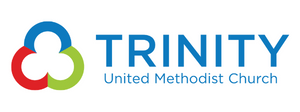1.19.25 CREATING THE COVENANT: Faithful to All
Genesis 9:8-17, Hebrews 11:3-10
Episode 2: Who Are We?
Daily Reading:
Day 1: Genesis 1-3
Day 2: Genesis 6:5-9:17, 11:1-9*
Day 3: Genesis 12, 15, 17, 22
Day 4: Genesis 27-28, 32-33
Day 5: Genesis 37, 41, 43, 45, 50
Day 6: Genesis 1:26-31
Day 7: Group Meeting Experience on Genesis 9: 7-17
We begin our covenantal journey at the very beginning, with Genesis—a book that introduces the patterns of covenantal relationships between God and humanity. In Genesis, we encounter the covenant with Adam and Eve, the covenant with Noah, and the covenant with Abraham. These foundational stories announce humanity’s need for covenant with God and set the stage for God’s faithful, restorative work despite human failure. In the Garden of Eden, Adam and Eve are given dominion over creation with one condition: not to eat from the tree of the knowledge of good and evil. Yet, tempted by the serpent, they break this first covenant, establishing a recurring pattern of human disobedience and divine faithfulness.
The story of Noah deepens this theme. Disheartened by humanity’s wickedness, God chooses to start over with a flood but spares Noah and his family. After the waters recede, God makes a covenant with Noah, promising never to destroy creation in this way again. This moment shifts the narrative from destruction to restoration, highlighting God’s steadfast commitment to humanity despite its failings. God’s promise to remember the goodness of creation becomes a cornerstone of God’s relationship with the world, reaffirming the divine intention to partner with humanity.
The covenantal story then moves to the family of Abraham and Sarah, whom God calls to leave their home and promises to make into a great nation. Though they trust God, they falter, doubting God’s timing and taking matters into their own hands. Yet, through their faith and flaws, God’s promises endure, and Isaac is born. This covenant is carried forward by Isaac and Rebekah, then Jacob, whose journey reflects both personal failures and divine faithfulness. Jacob’s transformation into Israel and his family’s eventual settlement in Egypt demonstrate that God’s promises persist even through human imperfection and family conflict.
Genesis concludes with the story of Joseph, a powerful example of how God works through human suffering to fulfill covenantal purposes. Betrayed by his brothers and sold into slavery, Joseph rises to power in Egypt and ultimately saves his family during a famine. His declaration, “You intended to harm me, but God intended it for good,” underscores the central theme of covenant: human failure is never the end of the story, because God’s faithfulness endures. As we explore these ancient partnerships, we are reminded that God invites us into covenant still today—a relationship of promise, restoration, and steadfast love that draws us closer to the divine goodness. In Genesis God announces the intention of Covenant and we are called to hear that announcement today and engage with the New Covenant- Christ.
Discussion Questions:
- How does the recurring pattern of human failure and God’s faithfulness in Genesis shape our understanding of the relationship between humanity and God?
- In the story of Noah, what does the shift from destruction to restoration teach us about God’s intentions for creation and humanity?
- How do the lives of Abraham, Sarah, Isaac, Rebekah, and Jacob illustrate both the challenges and blessings of living in covenant with God?
- What can we learn from Joseph’s declaration, “You intended to harm me, but God intended it for good,” about God’s ability to work through human suffering to fulfill covenantal purposes?
- How does reflecting on the covenants in Genesis inspire us to engage with the New Covenant in Christ in our own lives?
To find a group, purchase a book, or learn more, click HERE.
